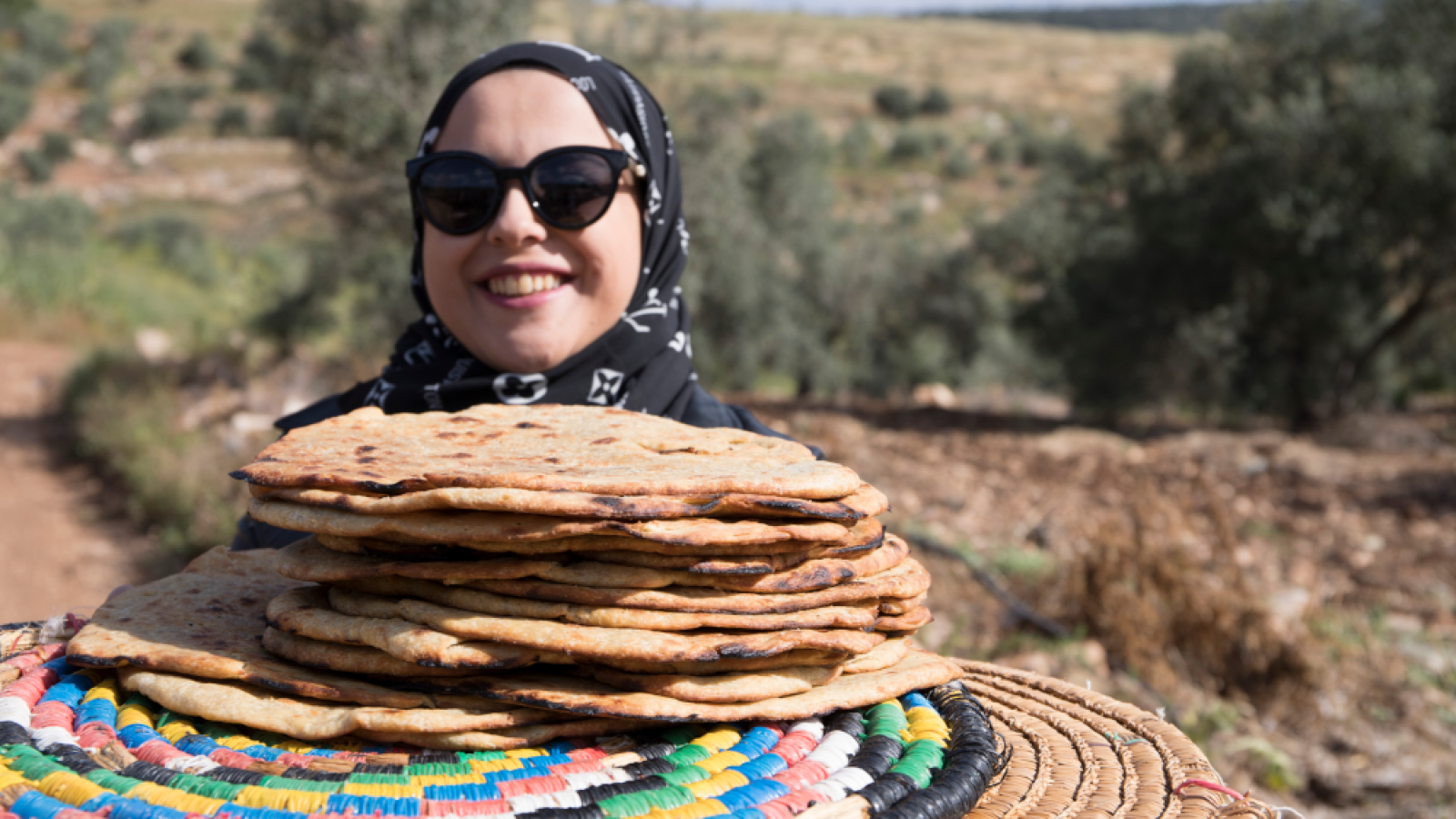Places, people and grants: ENI CBC Med contribution to a more inclusive, sustainable tourism in the Mediterranean highlighted on the occasion of World Tourism Day
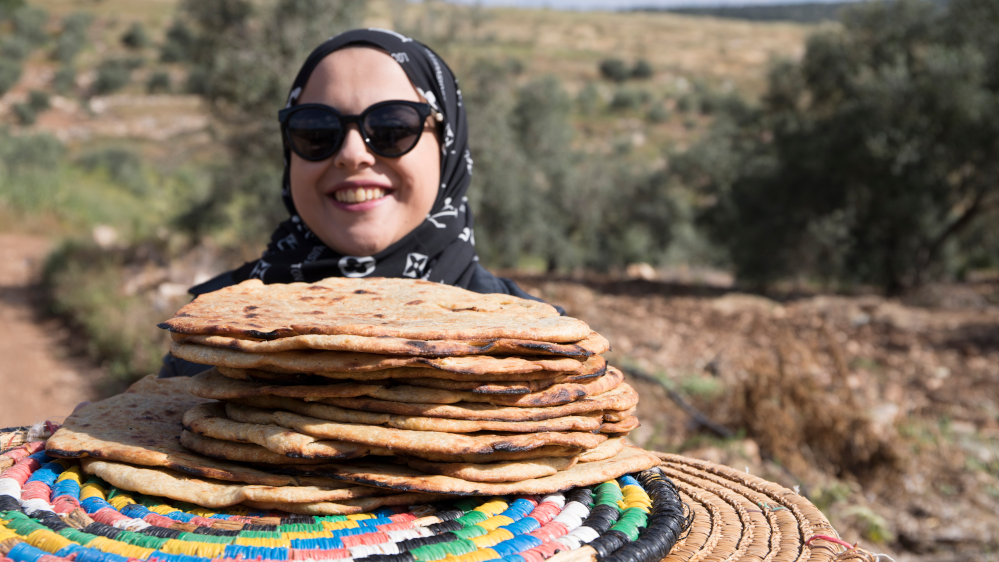
On the 27th of September, ENI CBC Med Programme celebrated the World Tourism Day which 2021 edition focused on inclusive growth. During a special webinar, over 80 participants discovered two stunning places in the Middle East, debated with three young entrepreneurs and got to know about funding opportunities for a different tourism. Read the full story below.
Sleiman’s artisanal saltpan or how to combine clean energy, more income and sustainable tourism in Lebanon
We started our journey with Georges Sleiman who took us to his Salinas in Anfeh, north of Lebanon. He is an electrical engineer, but he also belongs to the third generation of a family of salinas’ owner. His family has been working in salt production since 1948. Georges showed us his salinas while explaining the process of salt production which takes about 40 days from collecting water from the sea to packing marine salt. This is repeated up to 6 times a year during the season which runs between March to September.
Georges is one of the beneficiaries who were awarded a financial support through MedArtSal project and its local partners 'Fair Trade Lebanon' and 'Association for the Development of Rural Capacities'. Thanks to a small grant, he fixed the saltpan windmill and replaced the two traditional water pumps by more modern equipment. He is also about to install photovoltaic panels to produce clean electricity.
Our salina owner won’t stop here. He also started promoting his place as a tourist attraction. He has been receiving about 100 visitors a week, offering a unique experience to visitors who can enjoy the benefits of a feet bath in one of the salty pools while watching the sunset. A truly unique experience!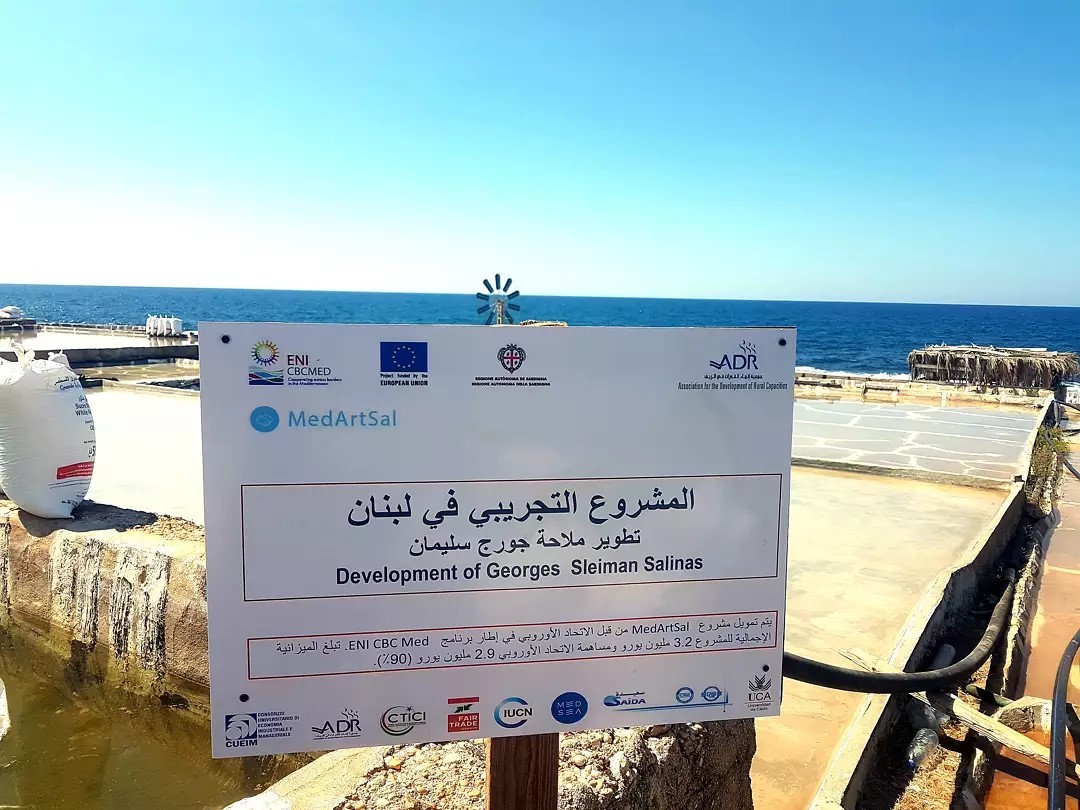
Pictures of Georges Sleiman salinas in Anfeh, North Lebanon
A tour in Battir: discover the land of olive and vines in Palestine
Our second visit took us to Battir, a Palestinian village located south west of Jerusalem. This village, listed as a World Heritage site by UNESCO since 2014, is well known in the region for its farming terraces, springs and aubergines.
Ghaida Rahil, from the organization ‘Palestinian Heritage Trail’, took us through the streets of Battir and introduced us to Inas, owner of stall, where she produces handmade souvenirs and traditional food and sells them to locals and tourists alike. Thanks to a small grant awarded under the CROSSDEV project, Inas was able to further develop her small business.
We also met Miriam, civil servant at the municipality of Battir, who told us about the traditions of her town. Since 2015, the municipality organises the ‘aubergine festival’. This is a push for farmers who suffer for not being able to export their products. Connecting to the land is so important to preserve the Palestinian heritage, she says. She couldn’t resist to share with us part of a traditional song that Palestinian farmers sing when they are working hard under the sun.
In a glimpse, this is what the Palestinian Heritage Trail, partner in CROSSDEV project, tries to promote: the hike is not only about discovering landscapes and enjoying nature. It is also about getting to know people and their culture.
Thanks to CROSSDEV project, the 500 km trail which goes from north to south of Palestine, was extended 50 km connecting Beit Mirsim to Battir via a new segment and funds were granted to support women in Battir like Inas and other women in the surrounding villages to develop tourism-related services along the trail.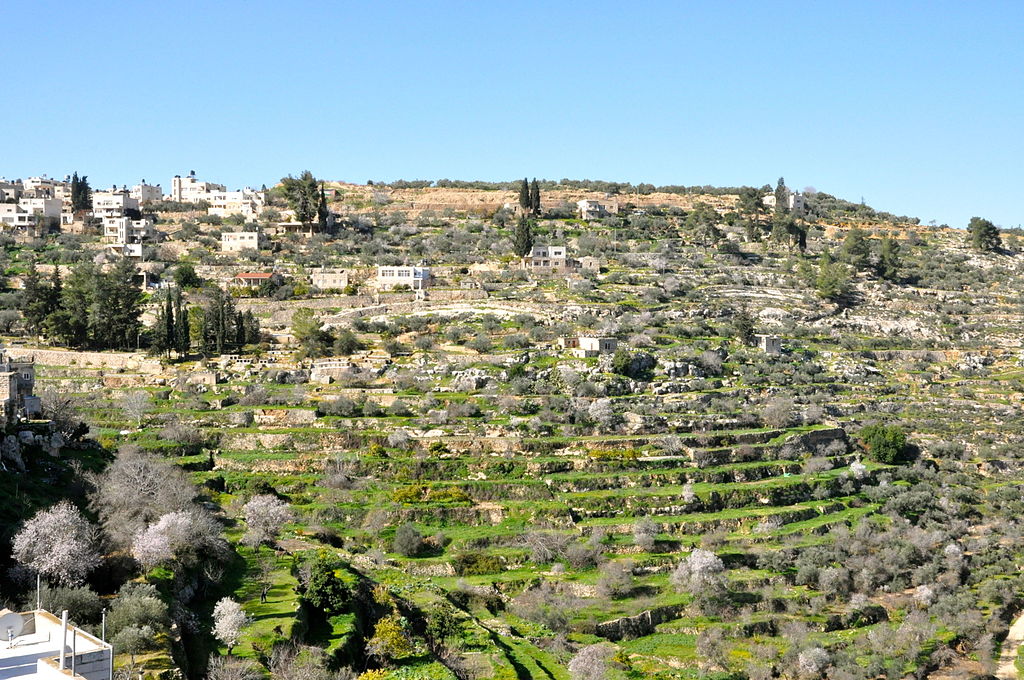
View of the village of Battir in Palestine (Author © Labour Palestine)
Young people use ICT tools for the sake of an alternative, sustainable tourism
After our two virtual visits in the Middle East, we met 3 young Mediterranean people who, with their energy, enthusiasm and the support from ENI CBC Med projects, are developing new tools promoting a different tourism in the region.
Gadara spinner: a board game to discover Umm Qais archaeological site in Jordan
Sondos Al Riqbat, a 24-year-old girl from Jordan, is one of the minds behind the board game called ‘Gadara spinner’. She developed it thanks to a grant from MED GAIMS project. She hopes that this game will be a new, engaging way to discover Umm Qais and learn about the ancient history of her country for both tourists and locals. Wacth a demo of the Gadara spinner below.
Tour my Table: a digital knock door can bring you to an authentic experience with locals
Claudia Tola, an Italian girl in her early thirties, came up with the idea of developing an app, Tour my Table, to connect from one side responsible tourists who are looking for authenticity and want to meet local people and from another side locals who want to cook and share their culinary tradition and part of their culture. Thanks to the support of MEDST@rts project, Claudia is working to finetune her business model and connect with potential investors.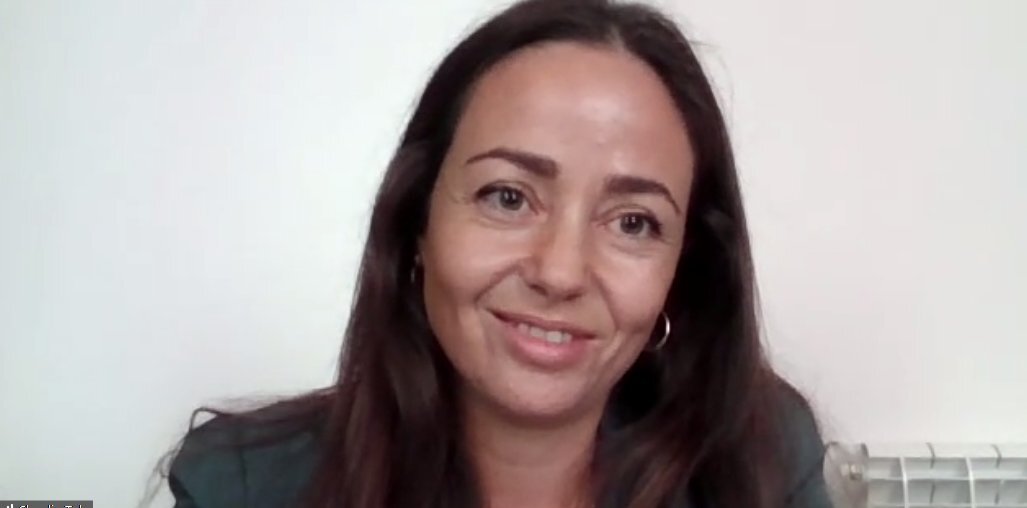
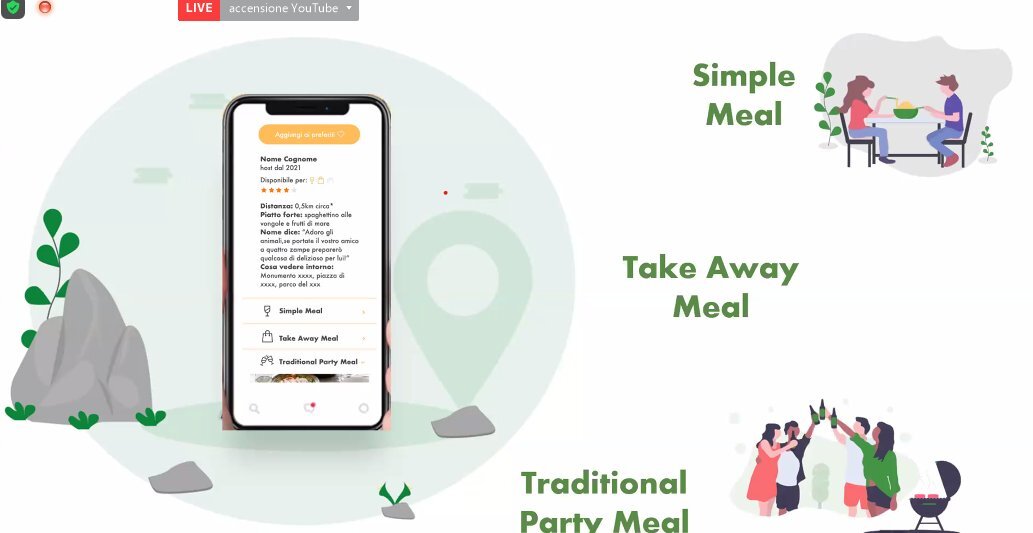
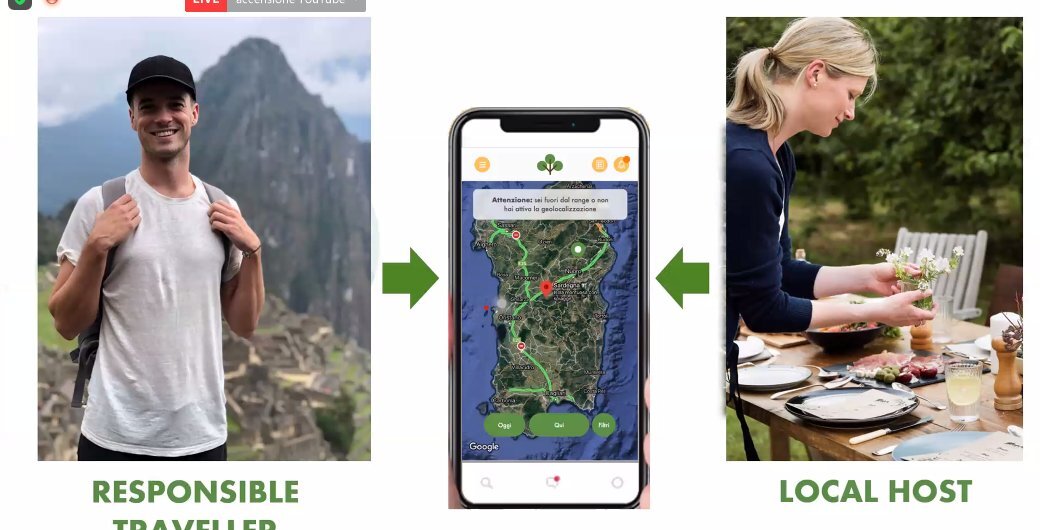
Claudia Tola presenting the "Tour My Table" platform and app
Artificial Intelligence and machine learning to boost sustainable tourism
Kevin Hani, 23 years old, is a Lebanese born entrepreneur who seized the opportunity of the 7.5 % increase of sustainable tourism demand to develop a website and an application called ‘TripnTap’. By using Artificial Intelligence and machine learning, he connects those looking for outdoor activities with tour operators and create a community that cares about sustainable environment while traveling.
When asking Claudia, Sondos and Kevin what they would do if they were appointed minister of tourism in their own country, they all agree that we would have to profoundly rethink tourism.
When asking our 3 young people what they would do if they were appointed minister of tourism in their own country , they all agree that we would have to profoundly rethink tourism.
Kevin would promote rural areas, the use of digital marketing and provide more certificates for locals guides in Lebanon. Sondos would give more opportunities to the younger generation to reinvent tourism while Claudia would really invest in more sustainable tourism to avoid mass tourism in Italy as it was during pre-pandemic era.
Grants, a tangible contribution of ENI CBC Med Programme to the development of sustainable tourism
Finally, the ENI CBC Med funded ‘Med Pearls’ and ‘MEDUSA’ projects presented their current funding opportunities through grants to support the sustainable tourism sector. While Med Pearls focuses on the development of Slow Tourism products, MEDUSA main interest is enhancing adventure tourism in the Mediterranean. Don't miss these two fantastic opportunities and check their websites!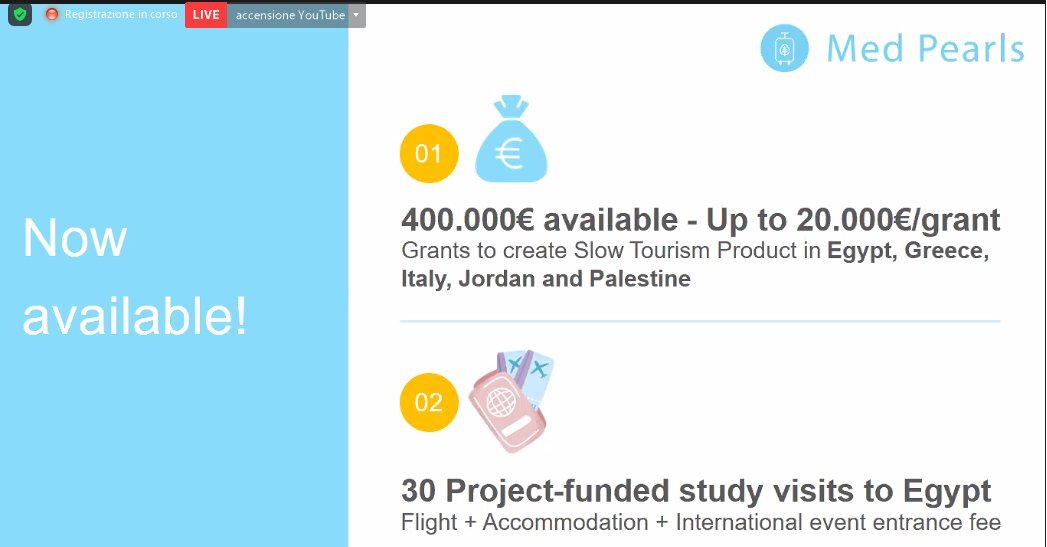
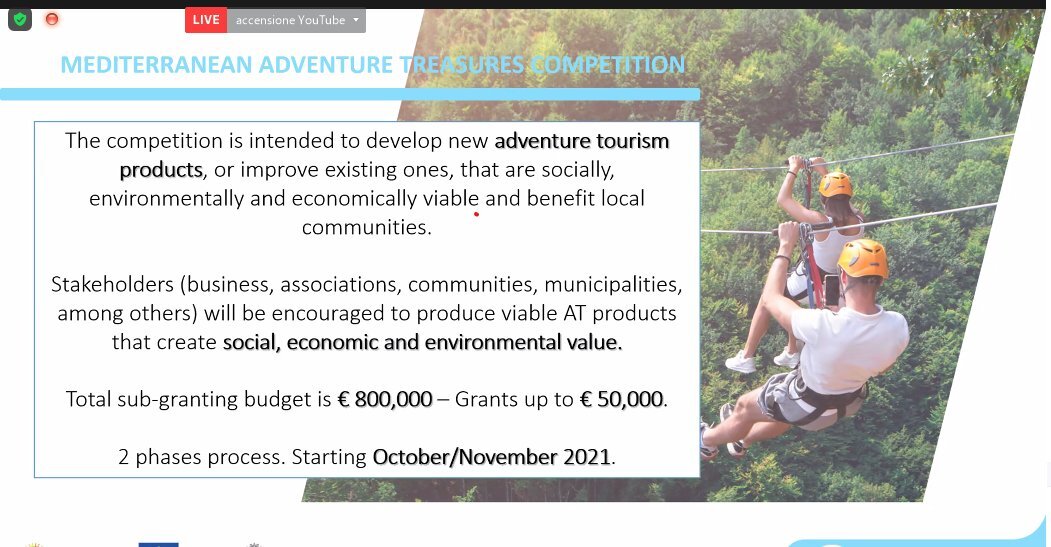
For the 2021 edition of the United Nations World Tourism Day, we didn’t want to focus on figures, we wanted to meet people, get to know their aspirations and their dreams. We found out different ways to approach sustainable tourism while always keeping in mind authenticity, responsibility and the preservation of our Mediterranean culture and environment.
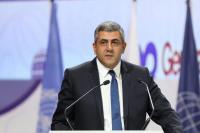
"Around the world, in countries at all development levels, many millions of jobs and businesses are dependent on a strong and thriving tourism sector. Tourism has also been a driving force in protecting natural and cultural heritage, preserving them for future generations to enjoy"








